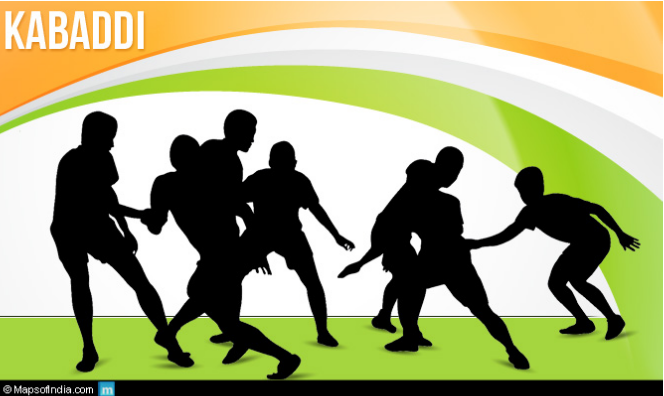The best matches of this extraordinary sport can be wagered by visiting the https://india-1xbet.com/live/kabaddi website today.
Kabaddi's origins can be traced back over 4,000 years to the Indian subcontinent. Back then, more than 4 millennia ago, it was a simple game played in villages, with little to no formal rules. It served as a form of entertainment, physical exercise, and a test of bravery. The word "kabaddi" is believed to have been derived from the Tamil word "kai-pidi", which means "holding hands".

As kabaddi gained popularity, various regions in India developed their own versions of the game. This led to the formation of distinct styles. The 3 most important of them were:
-
Amar;
-
Sanjeevani;
-
and Gaminee kabaddi.
Each of them had its own unique set of rules. Amar kabaddi, for instance, required the raider to touch as many opponents as possible and return safely to their side.
The need for standardization became apparent as the sport grew in popularity. In 1918, the 1st All India Kabaddi Tournament was held in Calcutta (now Kolkata), which played a crucial role in establishing a unified set of rules. This tournament marked a significant milestone in the sport's evolution and laid the foundation for modern kabaddi. If you like the modern game, you can go to the 1xBet platform now and place all kinds of wagers on it.
Experiencing an explosive growth
Kabaddi continued to gain traction within India, becoming a prominent sport at the National Games. It was also introduced to other countries, mainly in Asia, during the 1936 Berlin Olympics. This exposure led to the formation of the International Kabaddi Federation (IKF) in 2004, further promoting the sport's growth worldwide. Currently you can boost your play: exclusive 1xBet promos are available for kabaddi wagers as well.
The turning point for kabaddi's global recognition came with the inception of the Pro Kabaddi League (PKL) in India in 2014. The league introduced a structured format, franchises, and international players, transforming kabaddi into a professional and highly competitive sport. This shift not only increased the popularity of kabaddi but also brought financial stability to players.
There are many statistics that reflect the global phenomenon that kabaddi has become. Let’s discuss a few of them. In 1st place, we can say that the Pro Kabaddi League (PKL) has played a pivotal role in the sport's growth. In its inaugural season in 2014, the league garnered 435 million viewers, a testament to the sport's fan base. There are exclusive 1xBet promos that allow you to boost your play when wagering on the extraordinary Pro Kabaddi League too.
Kabaddi is also now played in over 30 countries worldwide. Nations like Iran, Pakistan, Bangladesh, and South Korea have strong kabaddi traditions, and the sport is gaining popularity in countries like Canada and the United States. It is more than likely that in the near future, those nations will have their consolidated kabaddi competitions.
India has dominated kabaddi at the Asian Games, winning every gold medal since the sport's inclusion in 1990. This dominance highlights India's prowess in the sport.
Women's kabaddi has also gained prominence, with India winning gold in both the 2010 and 2014 Asian Games. This demonstrates the sport's inclusivity and its ability to transcend gender boundaries.
Finally the Kabaddi World Cup, organized by the IKF, has been held 3 times since its inception in 2004. It has provided a platform for nations to showcase their kabaddi talent on the global stage. Needless to say, India has claimed gold medals in each one of those tournaments, which is a testament of this country’s domination in this discipline.






























